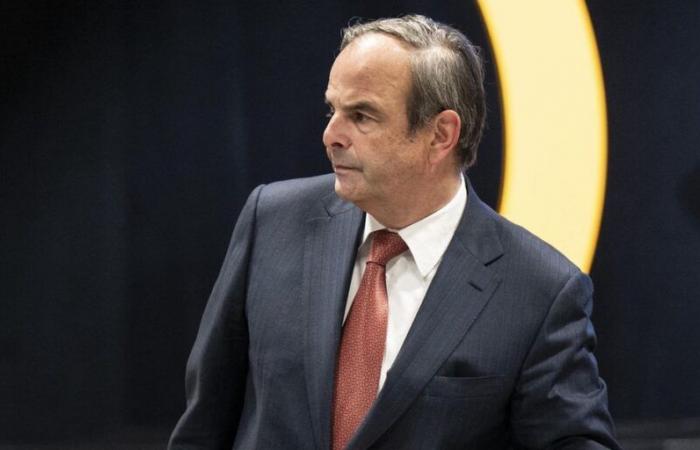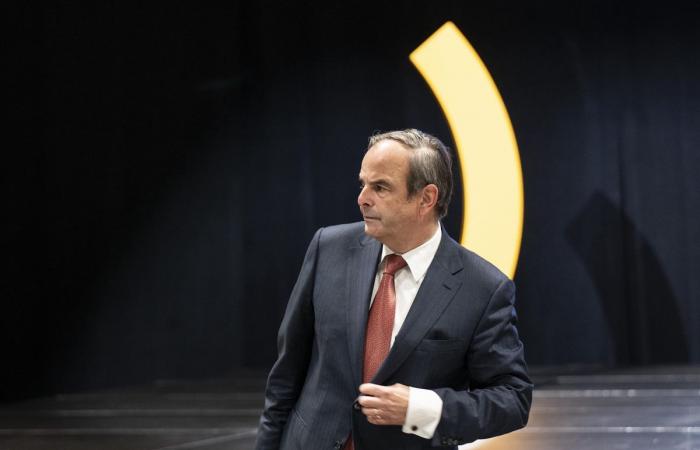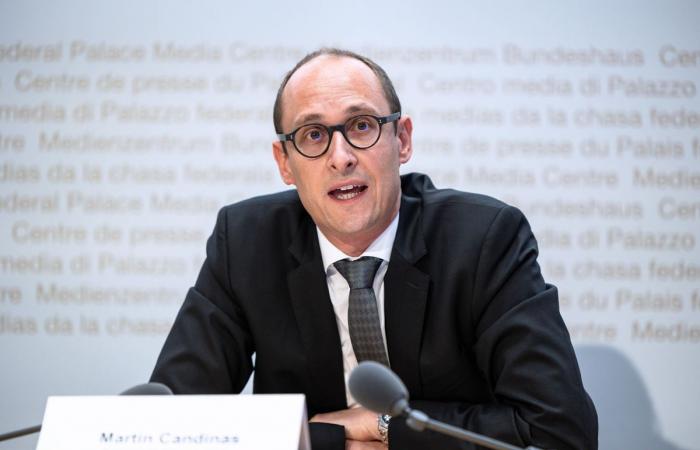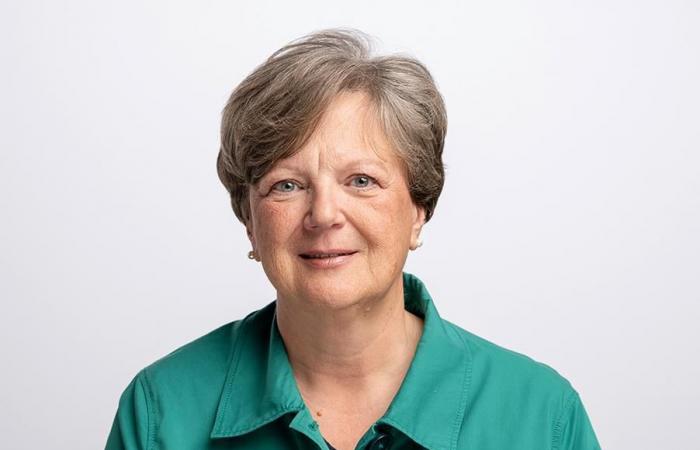Successor to Viola Amherd –
Gerhard Pfister is the big favorite – who else comes into consideration
Who will succeed the center Federal Councilor? The field of possible candidates is large. But three names stand out.
Published today at 5:49 p.m
Subscribe now and benefit from the read-aloud function.
BotTalk
- Viola Amherd is stepping down from the Federal Council after six years.
- Gerhard Pfister is considered the favorite to succeed him in the Federal Council.
- Martin Candinas could become Pfister’s biggest challenger.
- Isabelle Chassot is considered a possible female candidate.
After a good six years in office, Viola Amherd wrote in her resignation letter to parliament that she wanted to hand over the baton to a “fresh man.” She leaves it open who this force should be. She doesn’t have a desired successor, she said at the subsequent media conference.
It is clear that the seat will remain with the center – the party’s claim is undisputed in parliament. Because the mid-to-early summer also has to fill its executive committee, there is now an additional dynamic coming into the candidate carousel.
Some have ambitions for the highest political office in the country, but only a few have real chances. In this order of priority:
Gerhard Pfister
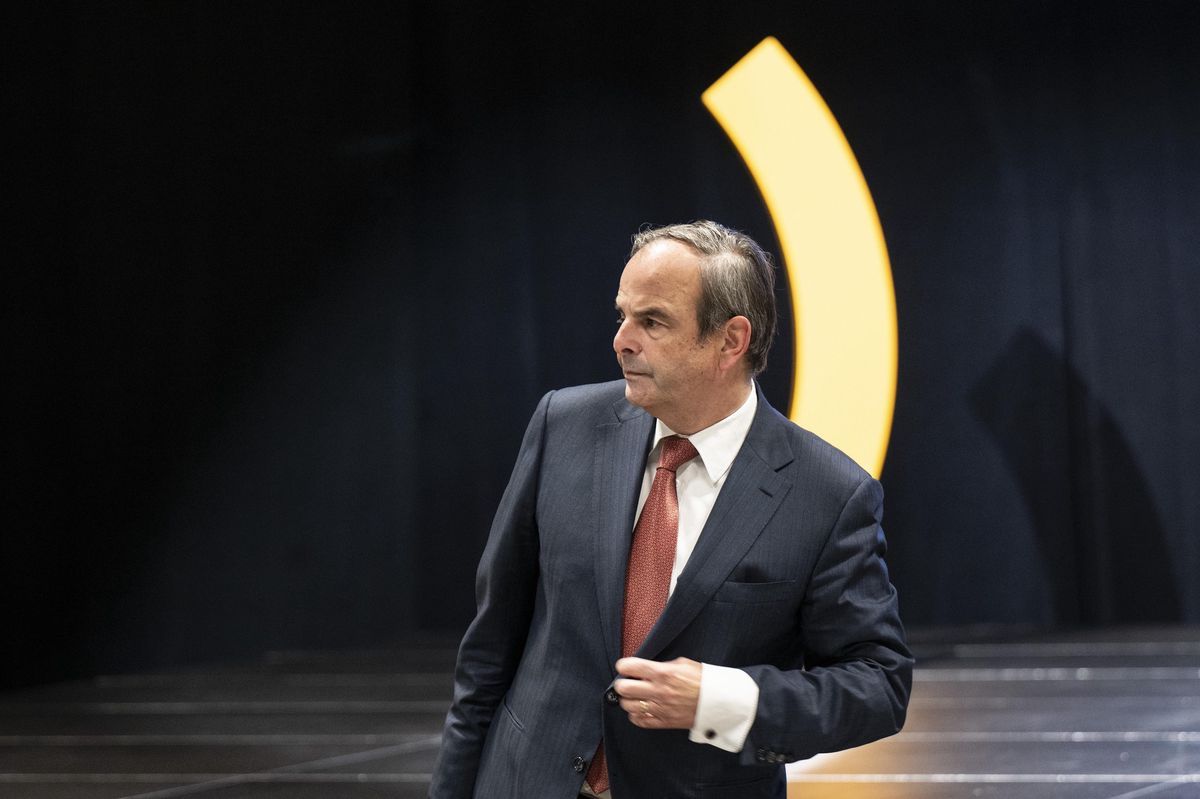
Gerhard Pfister is a candidate for the Federal Council if he runs for election.
Foto: Peter Schneider/KEYSTONE
The Monday before last Gerhard Pfister has already positioned himself as Amherd’s successor. After nine years as centrist president, he announced he would step down at the end of June. The fact that Amherd is leaving at the end of March shouldn’t really get in the way of his plans. It is likely that Pfister will now accelerate his departure as party president in order to be able to run for the Federal Council seat. The fact that he has ambitions has been an open secret for years.
Pfister is likely to start the race as the favorite. In terms of his age – he turned 62 last October – the Zug native is rather at the upper limit. But there are also regional arguments in his favour: Central Switzerland has no longer been represented in the Federal Council since Kaspar Villiger resigned in 2003. The pressure from Pfister’s home region is likely to be enormous.
The big question remains how much support the proven political fox enjoys within his own party and also in the other parties. After Hannes Germann, he is the longest-serving member of parliament and is considered an “animal politique” who knows all about it. But he also has a quick-tempered side. In the 20 years that he has been politicizing in Bern, he has not only made friends. Hardly anyone is likely to doubt Pfister’s professional qualifications for the Federal Council office.
Martin Candinas
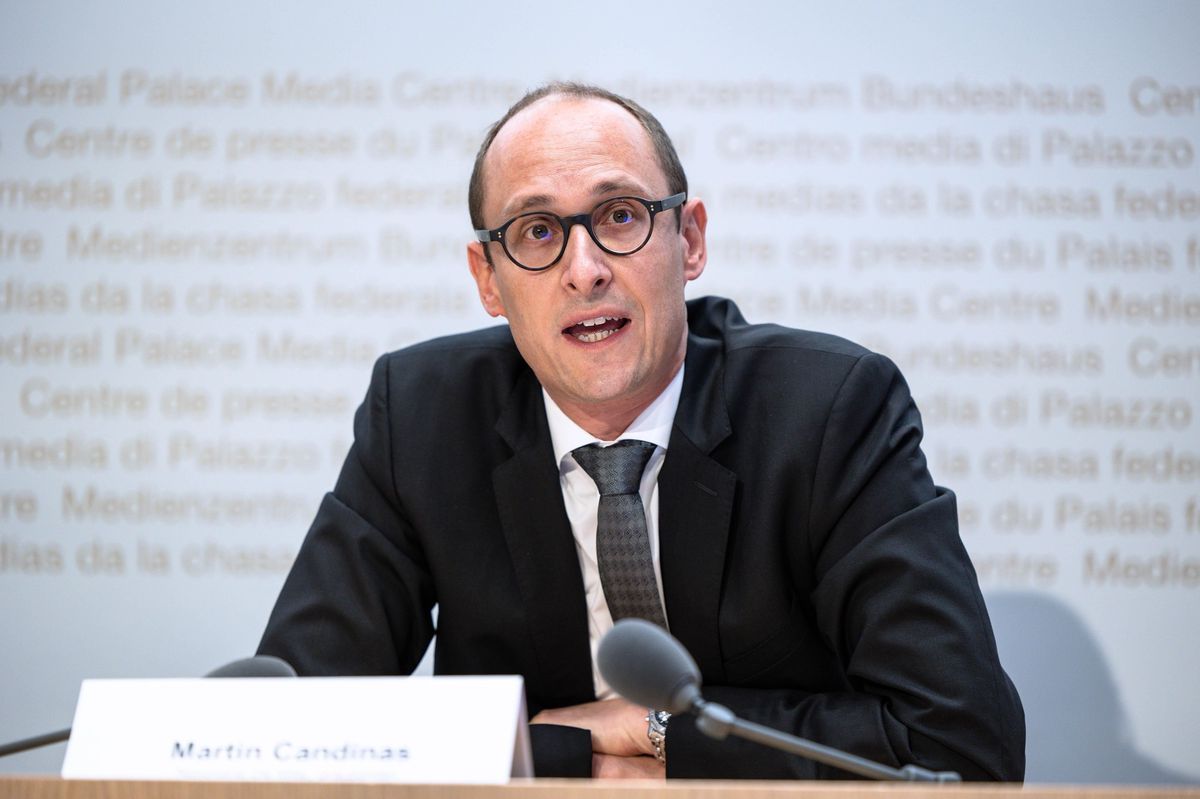
Martin Candinas from Graubünden could be Gerhard Pfister’s toughest competitor.
Photo: 20min/Simon Glauser
The Graubünden man showed no interest last week when it came to appointing Pfister’s successor as party president. Upon request, he left it open whether he would run for the Federal Council after Amherd’s resignation. His ambitions have long been known. And since his time as President of the National Council, it has been clear that the 44-year-old feels comfortable on the big political stage. If he runs, he could become Pfister’s biggest challenger.
What speaks for Candinas is that, in contrast to the other candidates mentioned, he belongs to a younger generation of politicians. Despite his age, Candinas is already an old hand in politics. From 2006 to 2011 he represented his home region of Surselva in the Grand Council of the Canton of Graubünden. Since then, Candinas has been a member of the National Council, where he gained a reputation as a fighter for the mountain regions and a friend of the SRG.
Compared to Pfister, he is seen as a sociable guy. Even if he can’t quite keep up with his party president when it comes to rhetoric, he is also a good speaker who can captivate an audience. After the Grisons SP National Councilor Jon Pult failed due to Beat Jans a good year ago, the way is clear for Candinas from a regional political perspective.
His young age could also be seen as a disadvantage for him – especially within his own party – because he could occupy the center’s Federal Council seat over several legislatures. Candinas also has school-age children, which raises questions about compatibility.
Isabelle Chassot
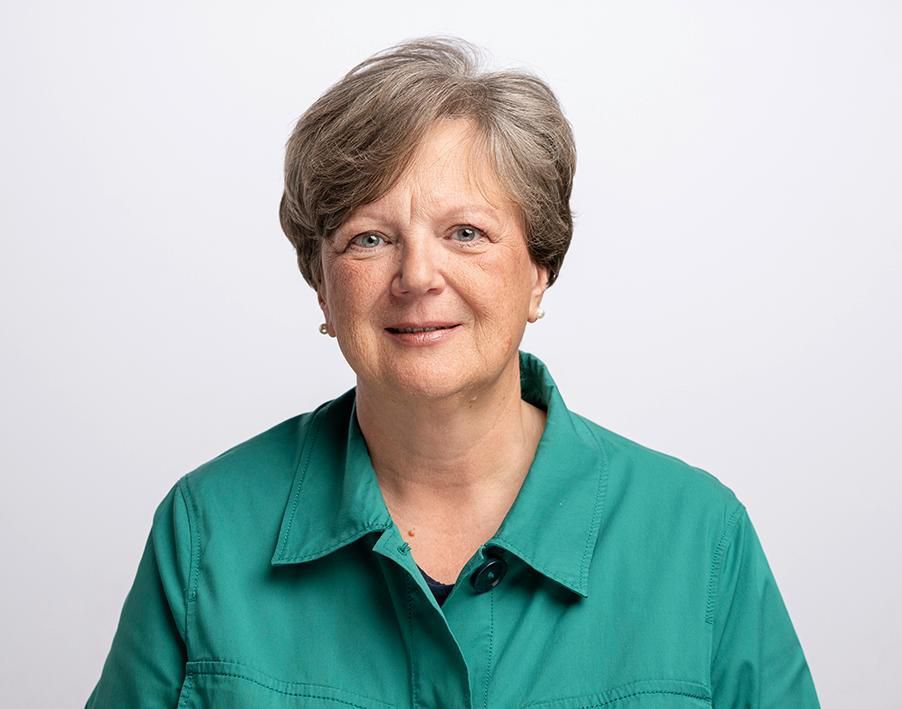
Isabelle Chassot has made a name for herself in Federal Bern as President of the PUK.
KEYSTONE
Isabelle Chassot recently held a prestigious position as president of the parliamentary commission of inquiry into the CS crisis. People in Bern say that the 59-year-old is said to have done her job well. However, there was also criticism that not much was shown during the exercise.
What speaks against Chassot is that three representatives from Latin Switzerland, Guy Parmelin, Elisabeth Baume-Schneider and Ignazio Cassis, are already represented in the Federal Council. What speaks for her, however, is that with Amherd’s resignation there are only two women left in the Federal Council. The left is therefore likely to demand at least one woman candidacy from the center. And Chassot would be in the front row.
Parliament could also rely on the fact that if Ignazio Cassis resigns, the Ticino seat will go to German-speaking Switzerland and that they would be represented again with four seats in the foreseeable future. Chassot would also be ideal because she comes from a bilingual canton. Although she is considered Romande, she speaks perfect German. As a Freiburg state councilor, she already has twelve years of government experience. As a personal advisor to two CVP federal councilors, she also knows Berne government operations very well. Until she was elected to the Council of States, she was director of the Federal Office of Culture.
However, after Pfister’s resignation, Chassot more or less took himself out of the race. She said on French-speaking Switzerland television (RTS) that she lacked the desire for the Federal Council office.
Benedict Würth

Benedikt Würth is a representative of the right wing of the party and could therefore score points with the FDP and SVP.
Photo: Alessandro della Valle/KEYSTONE
Benedikt Würth politicizes on the right wing of the center party and could therefore score points with the FDP and SVP. The 56-year-old stands for a restrictive financial policy and is against further expansion of social services. Würth’s government experience also speaks for him. From 2011 to 2020 he was a member of the St. Gallen cantonal government and played an important role as finance director. He is one of those centrist members of the Council of States who sometimes defy party reasons and take their own line.
The biggest handicap for Würth is that Karin Keller-Sutter, a representative of the canton of St. Gallen, already sits in the state government.
Christophe Darbellay
The probability that a Lower Valais man will succeed an Upper Valais woman in the Federal Council is low. Nevertheless, it is an open secret that Christophe Darbellay has always felt called to the highest orders. If he sees an opportunity for himself, the former CVP President and current Valais State Councilor could throw his hat into the ring.
Darbellay knows the federal operation in Bern inside and out. He has also been able to gain government experience in recent years. At the end of March he will be 54 years old and therefore the optimal age to jump into state government.
In addition to his Valais origins, another disadvantage for his candidacy is that he has not been involved in politics in the Federal Parliament for ten years and therefore no longer knows most members of parliament personally. His reputation in the SVP still suffers today because he was one of the masterminds behind the deselection of Christoph Blocher. He is also seen as a conservative representative in his own party, which no longer fully corresponds to the new image of the center.
Heidi Zgraggen
The Uri resident was defeated by her opponent Viola Amherd in the Federal Council election in December 2018. It is unclear whether she will run again. What speaks for the 58-year-old Councilor of States is that she comes from Central Switzerland. In addition, Uri has never been represented in the Federal Council.
Erich Ettlin
The 62-year-old from Obwalden has been a member of the Council of States since 2015. He is considered a profound expert on social welfare. As a representative of Central Switzerland he would have good chances. However, when asked, he said no to running for office.
Pirmin Bishop
The Solothurn resident sits on the party board and is the center group leader in the Council of States, so he belongs to the inner circle of the party leadership. Before Amherd’s election, Bischof was considered the most frequently mentioned Federal Council candidate in parliament, but decided not to run for office in 2018. He will be 66 in February and would be the oldest in the Federal Council. He also became a father again almost three years ago. Family obligations are likely to prevent him from running for office this time too.
The morning
The perfect start to the day with news and stories from Switzerland and the world.
More newsletters
Log in
Markus Brotschi is Tamedia’s Federal House editor; his reporting focuses on social and health policy. He has been working as a journalist and editor since 1994. More info
Found an error? Report now.
25 comments

